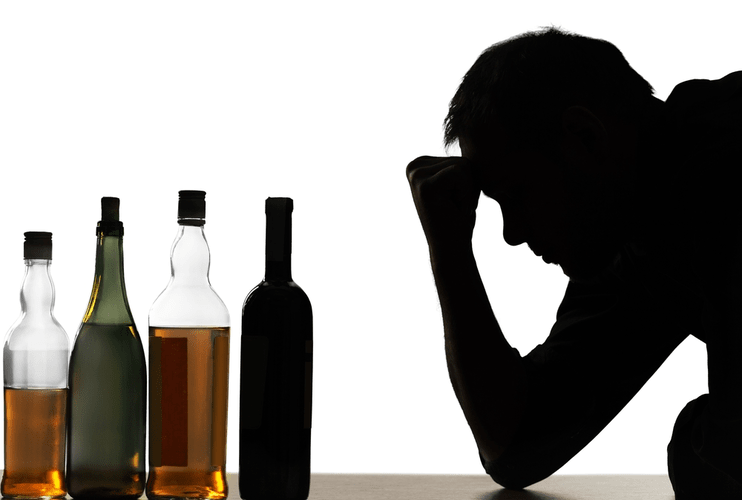When a person realizes they are powerless over alcohol, they have taken the first step to live a healthy, sober life. Many people with an addiction to alcohol feel guilt, low self-esteem, and shame. When a person admits that alcohol is affecting his or her life, they can start recovery. The first step is about powerlessness over behavior that makes the individual’s life unmanageable. The 12-step program is based on the belief that one day at a time we can take control of our lives by making positive changes.
There’s a reason for that—being honest with yourself and others is key to living the kind of rich, self-assured, fulfilling life that we all want. If you’re struggling with alcohol use—whether or not you’re in AA—it is up to you to choose how you describe your situation. Ultimately, the important thing is that you are working toward self-improvement and recovery.
I’m In Recovery
Instead, the treatment available focuses on helping you manage your condition, so you can achieve sobriety and resist relapse to alcohol abuse. Step 1 of AA is crucial because it’s not just about you and your recovery journey. After all, while people with AUD are powerless over alcohol, their loved ones feel powerless as well.
It’s not easy to admit our inability resist alcohol or internal humiliation, but you’re not alone. If you want to reap the positive benefits of AA, you must accept your alcoholic abuse disorder and its consequences. Your sobriety will remain unpredictable, and you won’t find any enduring strength until you can admit defeat. Admitting powerlessness is essentially waving the white flag and recognizing that you cannot try to drink anymore.
Are you Powerless Over Alcohol?
The brain’s function and the person’s physical health are affected. The brain controls our movements, thoughts, critical thinking, coordination, speech, and walking. When alcohol is consumed, the brain’s neurotransmitters, which send messages to other parts of the body, are disrupted.

Alcoholism and addiction are sustained through denial, or a lack of awareness of how severe your problem is. Drug & alcohol withdrawal can be agonizing — even life threatening. We highly recommend you do not attempt to detox on your own. A medical detox will help you safely and comfortably withdraw from drugs & alcohol.
How Admitting Powerlessness Helps You Move Through Your 12 Steps
Like AA members, NA members believe they cannot control drugs without the help of a higher power. According to Twelve Steps and Twelve Traditions (1981), “Our admissions of personal powerlessness finally turn out to be firm bedrock upon which happy and purposeful lives may be built” (p. 21). Alcoholics Anonymous (AA) operates under a set of 12 steps to achieve daily recovery.
Labor Secretary Marty Walsh opens up about his sobriety as the nation faces addiction crisis during Covid-19 pandemic – CNN
Labor Secretary Marty Walsh opens up about his sobriety as the nation faces addiction crisis during Covid-19 pandemic.
Posted: Thu, 30 Sep 2021 07:00:00 GMT [source]
AA is a group of fellow recovering alcoholics who use the 12 steps and sponsorship to hold you accountable and offer you a daily reprieve from alcohol dependency. But the terminal stages of addiction will strip everything away, and an addicted person who refuses to recover will often be left with nothing. What does “powerless” mean when it comes to alcoholism/addiction? The dictionary defines powerless as being without the power to do something or prevent something from happening.
History has proven that you have no control once a drop of alcohol enters your body. If you can grasp this knowledge, you will become a recovering, strong person. Remember, recovery is not being weak or less of a person. Recovery is about accepting that alcohol does not add to your life. Hanley Center is a well-known care provider offering a range of treatment programs targeting the recovery from substance use, mental health issues, and beyond. Our primary mission is to provide a clear path to a life of healing and restoration.
- The first step of AA says, “We admitted we were powerless over alcohol and that our lives had become unmanageable.” Admitting powerlessness over alcohol is the foundation of your recovery.
- We’re powerless when our mind is obsessing, so it’s nearly impossible to make the right decision.
- Feeling powerless makes us believe that there is nothing we can do.
- After the event, four women approached me with stories of their own; each with varying degrees of struggle, recovery, and hope.
- Alcohol truly served as my personal wolf in sheep’s clothing.
Many people drink to excess or use drugs irresponsibly, but then are able to stop or change their behavior after a few warning signals. Although you may be powerless in the fact that you struggle with addiction and have no control over it, you are not powerless over the actions you can take powerless over alcohol because of that knowledge. By accepting the things you cannot change and understanding that it’s possible to change the things that are within your control, you open yourself up to options that can help you heal. Step 1 of AA can be one of the most difficult on your journey to sobriety.
Patient Care Network
Most people react to people doing things that they don’t like by making their feelings plain, they shout, nag, punish etc. Sometimes this works. Indeed, at one time it was the accepted way of teaching children and criminals right from wrong. However, there are tried and tested ways we can address the drinker’s motivation that don’t involve these methods and they are much more effective. Hesitantly, I started on what would later become the most important decision of my life. He first had me think about all the things I lost due to my alcohol or drug use. So I did, and while I was mentally compiling that list I thought, “Damn, could all of this hurt and pain have been avoided if I had not been drinking or high?
Here’s what research reveals about our networks’ gravitational force. Even if you don’t believe in God, you can still undergo the AA first step. In fact, Step One AA is an essential part of your recovery. The original version of the Twelve Steps and The Big Book makes numerous references to God, and this is largely because AA’s founders were Christians. The original references to God were quickly challenged in the early days of AA, and Bill W. Addressed those challenges by explaining that every member was welcome to interpret God to mean whatever higher power they chose to believe in while working the steps.















